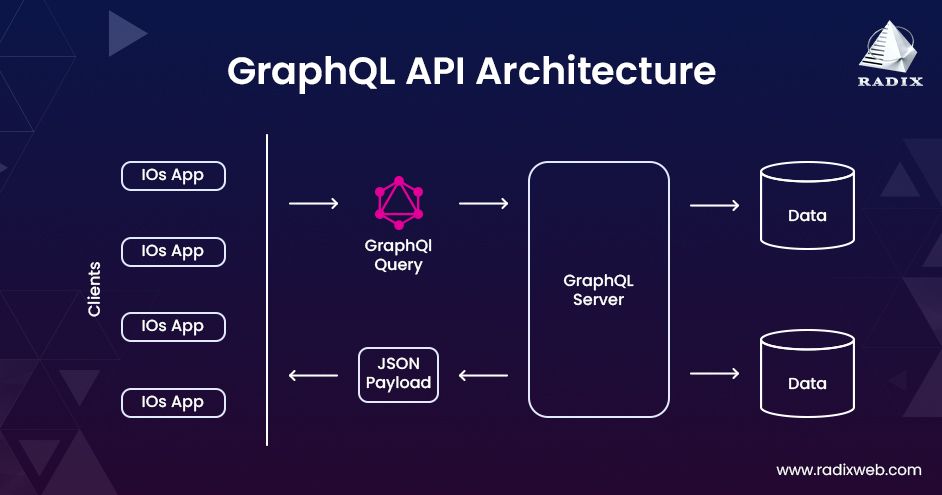
ArquTec Solutions specializes in GraphQL Application Programming Interfaces (APIs) Services development and integration. GraphQL provides a complete and understandable description of your data. Enabling applications to ask for exactly what data is needed and nothing more and nothing less. GraphQL queries return predictable results.
Applications using GraphQL are fast and stable and can control the amount of data received. Instead of multiple requests from various endpoints, and then parsing the combined results, a single GraphQL API endpoint request will retrieve all the data your applications needs in one single request. GraphQL usage can be quick even on slow network connections.
GraphQL reduces complexity and improves efficiency. GraphQL encapsulates getting data from multiple resources (databases, web services, microservices, legacy systems, and third-party APIs), adding an abstraction layer that hides the complexity of the underlying systems. GraphQL provides efficient request routing, graceful error handling, and parallel requests execution. An application points at one GraphQL endpoint, which routes requests to all the appropriate web services, microservices, legacy systems, and third-party APIs, and receives one exact result set. A single GraphQL query can interface multiple backend resources, which are processed in parallel for efficiency.
GraphQL APIs can be evolved without versioning, worry free, without impacting existing queries and client libraries. A single GraphQL endpoint can grow and expands it's schema add more data sets, without impacting the prior existing schema and applications using the GraphQL API Service.
GraphQL also optimizes mobile applications usage for speed and bandwidth. Mobile applications deal with bandwidth limits and slow networks. GraphQL can batch multiple requests into a single query reducing the total number of mobile application requests, therefore reducing the load on the server. Only the data actually needed by the mobile application is returned.
ArquTec Solutions GraphQL API Services Development provides:
✓ (1) Node.js GraphQL API service development.
✓ (2) GraphQL API development consulting services.
✓ (3) Legacy Systems Migration Services to a single GraphQL API endpoint.
✓ (4) GitLab Continuous Integration and Continuous Deployment (CI/CD) implementation.
✓ (5) Backend access authentication using Okta identity minted tokens.
✓ (6) Application users authorization using Open Policy Agent (OPA) integration.
✓ (7) API data encryption, fetching, and updates.
✓ (8) Vulnerability scanning, security threats, and regulatory compliance requirements implementation.
✓ (p) API Clients library code generation in JavaScript, TypeScript (for Angular), amd/or Java.